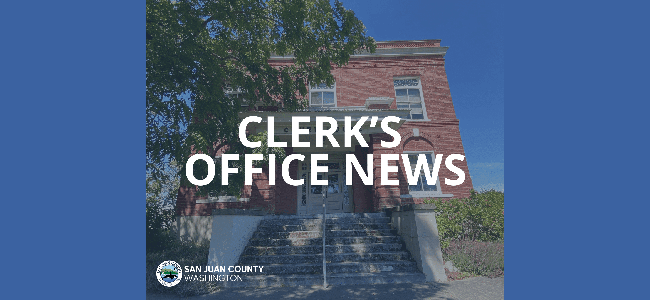||| FROM THE OFFICE OF RICK LARSEN |||
Today, the U.S. Department of Agriculture announced $714 million in ReConnect Loan and Grant Program funding to connect rural residents, farms and businesses to reliable, high-speed internet. This includes a $2,980,652 loan for the Hat Island Telephone Company to provide affordable high-speed internet to 93 people, six businesses and one farm in rural Snohomish County.
“Thanks to the Bipartisan Infrastructure Law, reliable, high-speed internet is coming to rural Snohomish County,” said Larsen, the lead Democrat on the Transportation & Infrastructure Committee. “Congress must build on bold, long-term investments in broadband like the BIL to close the digital divide and ensure more people in rural communities can log on for job opportunities, grow their business, access telehealth appointments, do homework, and connect with family and friends.”
According to the U.S. Census Bureau, an estimated 735,000 people in Washington state do not have an internet connection in their homes. An additional 500,000 households rely solely on limited cell phone data plans, while 30,000 households still use slower dial-up services.
Larsen a Champion of Broadband Investments
Larsen has long been a supporter of robust federal investment to deliver reliable, high-speed internet to more Northwest Washington communities.
- State Awards of American Rescue Plan Funding – Last month, the Washington State Department of Commerce awarded $121 million in grants for 19 broadband construction projects, including $26,157,178 for six projects in Point Roberts, Bow and the San Juan Islands in Washington’s Second Congressional District. The grant funding comes from the state’s investment of the federal Coronavirus Capital Project Fund, which was established as part of the American Rescue Plan in March 2021.
- Bipartisan Infrastructure Law – Larsen supported the Bipartisan Infrastructure Law, which invests $65 billion over five years to deliver affordable, high-speed internet to every American, including $2 billion for the USDA’s ReConnect Loan and Grant Program. To date, Washington has received $5 million through the Broadband Equity, Access, and Deployment Program (BEAD) to help provide access to high-speed internet across the state. In addition, about 272,000 households in Washington are enrolled in the Affordable Connectivity Program. Households can check their eligibility, sign up and find fully covered internet plans at GetInternet.gov.
- Fiscal Year 2024 Spending Bill – Larsen supports Reps. Abigail Spanberger (VA-07) and Zachary Nunn’s (IA-03) bipartisan request to provide robust funding for rural broadband initiatives at the U.S. Department of Agriculture, including the ReConnect Program, in the upcoming Agriculture spending bill.
**If you are reading theOrcasonian for free, thank your fellow islanders. If you would like to support theOrcasonian CLICK HERE to set your modestly-priced, voluntary subscription. Otherwise, no worries; we’re happy to share with you.**








So that is about $29,000 per high speed internet hook up.
Is this a good thing to fund when we are far from being able to even balance the Federal budget?
What will the dirty details of the impact of nature and living creation? I know the area is sacred to many due to the preservation of the natural environment and beauty. Sure internet is people’s addiction to escapism and work. I’m only commenting because I got the weirdest message on FB that was probably a scam but I clicked on the face that matched the catfish’s profile and here I found myself sad at how much our one of a kind state keeps being sold out to the point of no return. My grandfathers Bison farm was run out from the city of Mill Creek so I’d hate to hear about this sanctuary being destroyed too!
Three million dollar loan for copper to fiber optics, for a small island? Who uses a telecom company anymore? Hat Island Telephone Company is no longer needed for land lines with the advent of new inexpensive, reliable, high speed satellite communications. Time to cut the telecom cord now. Release the $2,980,652 loan.